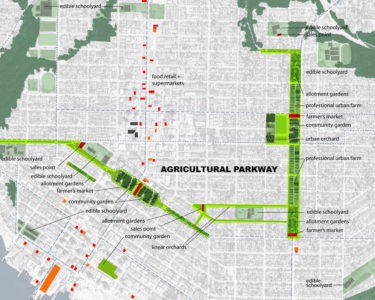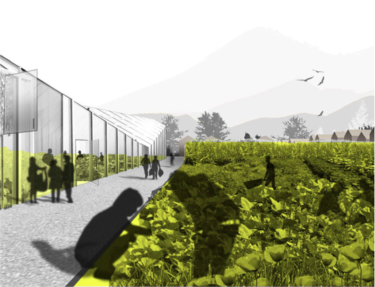May 11, 2010
Hybridizing the American ‘Parkway’: The Potential of Urban Agriculture to create more Sustainable Cities
Conference paper in Landscape Legacy: Landscape Architecture Between Art And Science: Proceedings of the 2009-2010 CELA Conference, 2010


Abstract
Hybridizing the American “Parkway” demonstrates how existing historic ‘parkways’, a legacy of American Landscape Architecture, can be overlaid with sustainable interactive programs, particularly with regard to urban agriculture, to increase their environmental, social and cultural values. Many of these linear landscapes conceived following formal principles are underutilized by residents and show poor environmental and ecological performance. Building on their existing connectivity and accessibility, the intersection between existing formal structures and new performing systems will generate multi-dimensional, holistic landscapes. The City of North Vancouver, BC serves as case study for the integration of urban agriculture programs in an existing parkway on the larger urban and infrastructural scale. For information on operational, technical and financial questions the paper refers to an urban agriculture pilot project, which is currently under development on city owned land in this municipality. The pilot project intends to measure the sustainable performance of a small urban farm and to establish a precedent for future policy changes to convert designated parkland into areas for urban agricultural use.
Citation
Proksch, Gundula. Daniel Roehr. 2010. “Hybridizing the American Parkway,” Landscape Legacy: Landscape Architecture Between Art And Science: Proceedings of the 2009-2010 CELA Conference, Maastricht, The Netherlands, May 11-14, (Wageningen: ISOMUL, University Wageningen, 2010), pp.194-195,
